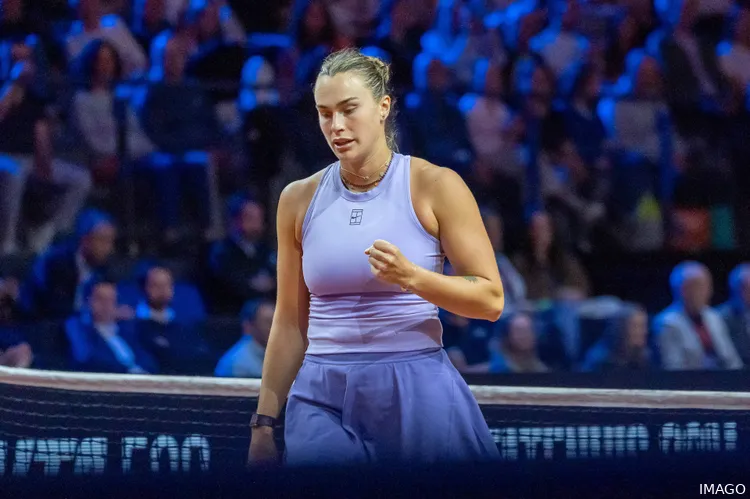Aryna Sabalenka, the world’s top-ranked women’s tennis player, has always been a force of nature on the court, her powerful serves and relentless aggression earning her three Grand Slam titles, including the 2023 and 2024 Australian Opens and the 2024 US Open. Yet, as she prepares for the 2025 Mutua Madrid Open, a cloud of caution hangs over the Belarusian star. In a candid revelation during a pre-tournament press conference on April 23, 2025, Sabalenka expressed deep unease about consuming food and drink, driven by fears of inadvertent doping violations amid recent high-profile cases in tennis. “I’m becoming very cautious,” she admitted, her words reflecting a troubling reality for athletes navigating an era of heightened scrutiny.
Sabalenka’s concerns stem from a string of doping controversies that have rocked the sport, casting a shadow over its integrity. With several top players facing sanctions, she has adopted extreme measures to protect herself. “I only consume what my team controls,” she said, detailing her meticulous approach. “I’m careful about what I touch, who I shake hands with. A simple cream can be enough to cause problems. It’s scary.” Her fears are not unfounded; the possibility of contamination from everyday items—like a lotion or a glass of water—has become a chilling concern for players, with some cases highlighting how trace amounts of banned substances can trigger positive tests. Sabalenka’s vigilance underscores the paranoia gripping the WTA Tour, where a single misstep could derail a career.
The 26-year-old’s comments come as she aims to reclaim her dominance on clay, a surface where she has shown both brilliance and inconsistency. Her 2025 season has been a rollercoaster, with titles in Brisbane and Miami but painful losses in the Australian Open, Indian Wells, and Stuttgart finals. In Stuttgart, a 6-4, 6-1 defeat to Jelena Ostapenko marked her fourth runner-up finish, prompting scrutiny of her post-match sarcasm toward her team. Now, in Madrid, where she reached the final in 2023, Sabalenka is focused on channeling her energy into a deep run, starting with a second-round match against a qualifier. Yet, her doping fears add an extra layer of complexity, forcing her to balance physical preparation with mental resilience in an environment fraught with uncertainty.
Sabalenka’s cautious approach began earlier this year, as she shared in February 2025. “You just start to be more careful,” she noted then, recalling how she once wouldn’t think twice about leaving her glass unattended. “Things get to your head that like if someone used a cream on you & you test positive, they’re not going to believe you.” Her team, led by coach Anton Dubrov, now oversees every aspect of her intake, from meals to hydration, a process she finds both exhausting and necessary. This hyper-vigilance has sparked sympathy among fans, with social media posts lamenting the toll on players’ mental health. “Sabalenka scared to drink water? This doping mess is out of control,” one X user wrote, capturing the sentiment of a tennis community grappling with distrust.
The broader context of doping scandals has amplified Sabalenka’s concerns. Recent cases, including those involving top players, have raised questions about the fairness and clarity of anti-doping protocols. For Sabalenka, who has never faced a doping violation, the fear of being caught in a false positive is palpable. “It’s flippant,” she said, using the French term for “scary” to emphasize her anxiety. Her comments echo those of other players, who have called for more transparent testing processes to protect clean athletes. The WTA’s rigorous testing regime, while essential, has left players like Sabalenka walking on eggshells, wary of even the most innocuous interactions.
Despite these challenges, Sabalenka remains a formidable presence. Her nearly 4,000-point lead over No. 2 Iga Swiatek in the WTA rankings reflects her consistency, even in a season marked by near-misses. Madrid offers a chance to add to her nine WTA singles titles, but the doping fears loom large, a reminder of the off-court battles athletes face. Her ability to compartmentalize—joking about a “strong handshake” from an umpire in Stuttgart or laughing through a power outage during an interview—has endeared her to fans, but the doping issue tests even her resilience.
As Sabalenka navigates the clay season, her story highlights a troubling paradox in modern tennis: the pursuit of greatness comes with unprecedented caution. Her fears, shared openly, humanize a champion who thrives on boldness yet must now guard against invisible threats. Whether she conquers Madrid or faces further setbacks, Sabalenka’s candidness sheds light on an issue that transcends her sport, sparking a broader conversation about trust, fairness, and the price of staying clean in a tainted landscape. For now, she presses forward, a warrior on the court and a wary guardian of her own destiny.

